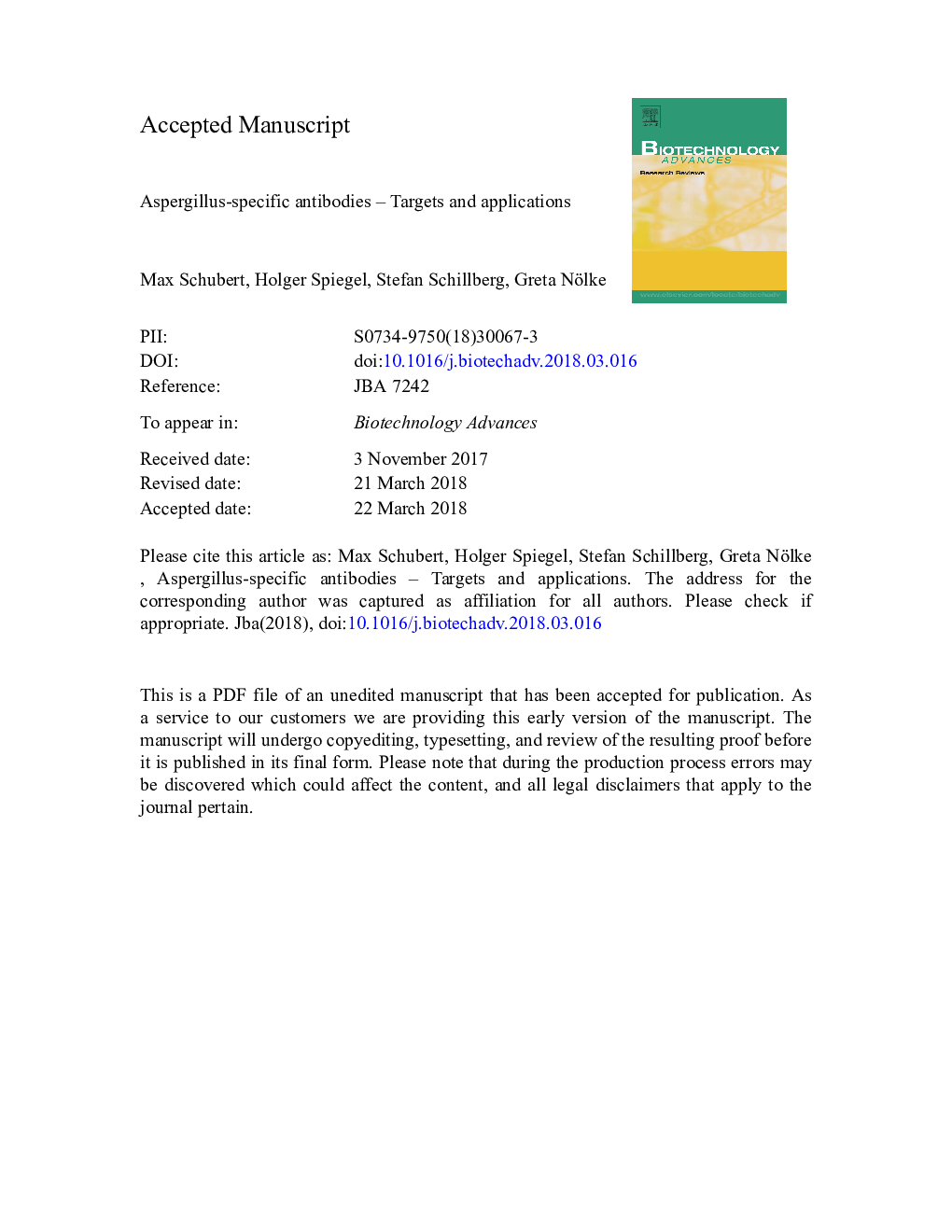| Article ID | Journal | Published Year | Pages | File Type |
|---|---|---|---|---|
| 6486597 | Biotechnology Advances | 2018 | 64 Pages |
Abstract
Aspergillus is a fungal genus comprising several hundred species, many of which can damage the health of plants, animals and humans by direct infection and/or due to the production of toxic secondary metabolites known as mycotoxins. Aspergillus-specific antibodies have been generated against polypeptides, polysaccharides and secondary metabolites found in the cell wall or secretions, and these can be used to detect and monitor infections or to quantify mycotoxin contamination in food and feed. However, most Aspergillus-specific antibodies are generated against heterogeneous antigen preparations and the specific target remains unknown. Target identification is important because this can help to characterize fungal morphology, confirm host penetration by opportunistic pathogens, detect specific disease-related biomarkers, identify new candidate targets for antifungal drug design, and qualify antibodies for diagnostic and therapeutic applications. In this review, we discuss how antibodies are raised against heterogeneous Aspergillus antigen preparations and how they can be characterized, focusing on strategies to identify their specific antigens and epitopes. We also discuss the therapeutic, diagnostic and biotechnological applications of Aspergillus-specific antibodies.
Keywords
Related Topics
Physical Sciences and Engineering
Chemical Engineering
Bioengineering
Authors
Max Schubert, Holger Spiegel, Stefan Schillberg, Greta Nölke,
